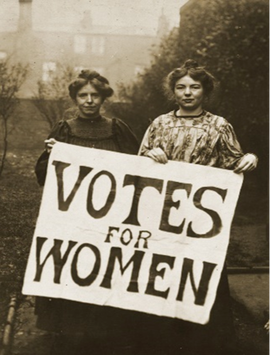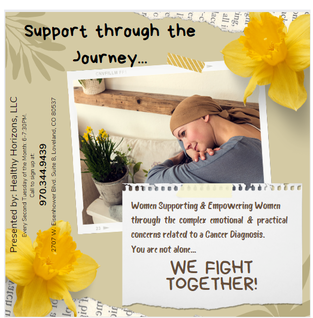 Blog written by Erin Jones, M.A., M.Ed., LPC Image by Hans Bijstra, 2020 I recently had the privilege to attend a family member’s honor ceremony. He was an Air Force veteran. This was not the first National Cemetery I have had the opportunity to visit, nor the only military loved one lost in my family, but as I gazed at the headstones in view while Taps was played, I could not help but feel the weight of the lives represented there that morning. My mind drifted with so many questions. I found myself wondering about all the life stories associated with the headstones I could see from my vantage point. I thought about how many of those might have died in the line of duty, and as a mental health professional, I could not help but think about the grief and loss represented there that day. My heart sank a bit thinking about all the family members who have mourned those there. Why do we celebrate Memorial Day? As Memorial Day approaches, and with one of my own children preparing to enter boot camp, I've been reflecting on the true significance of this day. It's not just a day off or a time for barbecues. It's a day to honor those who have made the ultimate sacrifice for our country. When children ask about Memorial Day, it's important to convey this gravity to help them understand the true meaning of this day. Memorial Day is more than just the long weekend we associate with the unofficial start of summer. It is a solemn occasion to pay tribute to the brave individuals who laid down their lives in defense of our nation. Their sacrifices have secured our liberties and ensured the safety and security of future generations. It is a day to remember their courage, honor their memories, and express our gratitude for their service. A little history: Memorial Day is observed on the last Monday of May and is a day of remembrance for those who have died in military service to the United States. This holiday, steeped in history and significance, serves as a poignant reminder of the sacrifices made by countless men and women to protect the freedoms we enjoy today. Memorial Day, as we know it today, has its roots in the aftermath of the Civil War, a conflict that claimed more American lives than any other war in our history. Originally called Decoration Day, it was a time set aside for decorating the graves of those who died in the war with flowers. The first widely recognized observance of Decoration Day was on May 30, 1868, when General John A. Logan declared it a day for the nation to decorate the graves of those who died in defense of their country during the Civil War. Over time, the observance expanded to honor all American military personnel who died in service. In 1971, Memorial Day was officially declared a national holiday by an act of Congress, and its date was set as the last Monday in May, ensuring a three-day weekend for Americans. How can we honor those who sacrificed it all? Visit a Cemetery or Memorial: Many people visit cemeteries and memorials to place flags, flowers, or other mementos on the graves of those who served. National cemeteries often host special events and ceremonies. There is something quite sobering about the sea of headstones seen at the National Cemeteries, and it is a valuable lesson to our children to honor those who gave it all. Did you know that there is a National Moment of Remembrance? At 3 p.m., whatever your local time is on Memorial Day, pause for one minute to remember and honor those who have died in military service. This collective act of remembrance unites the nation in gratitude and reflection. Considering mental health and support: Military members and their families can carry a unique emotional burden. They can also be at a higher risk for mental health struggles, including Posttraumatic Stress Disorder (PTSD), anxiety, depression, grief, loss, and even addiction. I think the most meaningful way any of us can honor those who have fallen serving our country is to support current veterans and their families. Beyond acts of kindness such as paying it forward when you see a service person behind you in line somewhere, or stopping to shake their hand and say thank you, consider donating your time, talents, or even finances to a trusted organization that supports veterans. Remember that the families of our service men and women make sacrifices as well. Taking time to thank those who serve, honor those who have fallen, and support their family members can make a significant difference in the lives of our military members and their loved ones. At Healthy Horizons, veterans and their families are honored, and a standing discount is offered to every vet. If you know a veteran who could benefit from counseling support, validate and show your appreciation for their experience. Let them know there is hope and help. Feel free to share this blog and let them know we are here for them! As you prepare for Memorial Day, remember that it is a day of profound significance. It offers an opportunity to remember and honor the heroes who have made the ultimate sacrifice for our nation. By participating in meaningful observances, reflecting on the importance of this day, and sharing the purpose of this National holiday, we can ensure that their legacy lives on in our hearts and minds. For more information about Erin and the services provided for our veterans and their families at Healthy Horizons, visit: https://www.yourhealthyhorizons.com/team.html
0 Comments
 Blog written by Erin Jones, M.A., M.Ed., LPC Image by: Jenniel Roberts, 2016 If you are the parent of a child with ADHD, you may have had a frequent flyer thought going through your mind as the end of the school year approaches, “School is almost out, and I don’t know what to do with my child who has ADHD!” If this is true, you are not alone! Adjusting to the summer months with children can be challenging. Parenting a child with ADHD can be especially overwhelming. Yet, the long-awaited summer months can also be a wonderful time filled with opportunities for fun, learning, and relaxation for the whole family. However, for children with ADHD, the lack of structure that often comes with summer break can be challenging. Establishing a daily routine for any of your children over the summer months is important when it comes to peace, productivity, and enjoyment for the whole family. When it comes to kids with ADHD, this is especially true. Though it may sound counterintuitive, a routine based on structured flexibility can help kids feel secure and engaged throughout the summer months. Here are some tips to help you create an effective summer routine for your child with ADHD. Start with a consistent wake-up and bedtime. Consistency is key for children with ADHD. Maintaining a regular wake-up and bedtime schedule helps regulate their internal clock and provides a sense of stability. When kids with ADHD experience poor sleep quality, it can exacerbate symptoms of the disorder, which can then trickle into the sense of chaos in the home. Aim to keep wake-up and bedtime within an hour of what they were during the school year, which will also help with that adjustment back to the school year! Involve your child in the planning of the summer schedule. Involving your child in the planning process can give them a sense of ownership and control over their routine. Let them choose some of the activities and help create the visual schedule. This encourages responsibility and engagement. A visual schedule can be incredibly helpful for children with ADHD. Get creative with your child (kiddos with ADHD are often extremely creative!) and make a visual poster or write out a basic schedule on a whiteboard. Remember to include times for meals, activities, free play, and relaxation, being sure to leave time for spontaneous activities or melt-downtime and time for your response to those incidences. Regaining control after a meltdown will not go well if the family feels rushed to keep to a schedule. While the use of digital apps to outline the day's activities can be helpful for some parents, these methods are less helpful for kids with ADHD than a visually physical schedule because they may lose track of time and become side-tracked more easily. This visual cue helps children understand what to expect and reduces anxiety about transitions. Incorporate physical activity. Research has consistently suggested that physical activity is essential for children with ADHD, and it is cited as the best natural medicine for managing the symptoms of ADHD. It not only helps burn off excess energy, but it also helps stabilize mood and improve focus. Include time for outdoor play, as the lighting and fresh air impact neurological chemistry in a positive way and can improve sleep. Activities can include sports, swimming, or even a family walk or hike. Aim for at least 60 minutes of physical activity each day. Balance structured and unstructured time. While structure is important, it's also beneficial to allow for some unstructured time, so, allow for flexibility. Yes, having a routine is important, but it's also essential to be flexible. Summer is a time for fun and spontaneity, so be open to changes in the schedule for special events or outings. Flexibility within a structured routine helps children with ADHD adapt to new situations. This means structured flexibility, and if you are the parent of a child with ADHD, you know that rigidity is not your friend. This helps children develop creativity and independence. Balance structured activities like reading or craft projects with unstructured playtime where your child can choose their own activities. This also means that you'll need to plan for downtime. Children with ADHD can easily become overstimulated, often leading to undesirable behaviors, so it's important to include downtime in their routine. This could be a quiet time in their room, reading, listening to calming music, or practicing mindfulness exercises. Downtime helps them and you, the parent, recharge and prevent burnout. Set clear expectations and rules. At the risk of sounding cliché here, keep it simple. Having clear expectations and rules helps children with ADHD understand what is expected of them. Avoid sounding off instructions in a long string of to-do lists. Children with ADHD will not remember the list if it is too long. Two steps at a time, no more than three, will help your child succeed. Be specific about what needs to be done and what the consequences will be if rules are not followed. Consistency and clear communication are key. Include academic activities. It is important to keep your child’s mind active during the summer. Include time for reading, educational games, or fun learning activities that align with your child's interests. This helps maintain academic skills and makes the transition back to school easier. Try engaging in lessons around gardening, your family pets, the impact of sports and physical activities on the body, or even the history around any of your vacation activities. This will likely be more engaging to your child as it will provide a visual, and hands-on approach! Embrace play and silliness! Laughter is good medicine whether one has ADHD or not. Not only does it lift the soul, balance emotions, and create lasting bonds, it actually has an impact on the brain. Being playful and silly with your children models how to let go and connect with others. This can be especially true for kids with ADHD because they can often encounter criticism, reprimand, and feedback from peers that can lead to anxiety and impact self-esteem. I promise, it will not only bring a sense of release from the pressures that accompany ADHD for your children, but you, too, will feel pretty good as a result! Incorporate creative activities. People with ADHD are notorious for being creative. Creative activities like arts and crafts, music, or building projects can help improve focus and provide a productive outlet for energy. Encourage your child to explore different hobbies and interests. Use positive reinforcement. Positive reinforcement can motivate children with ADHD to follow the routine. Praise and reward your child for sticking to the schedule and completing tasks. This builds confidence and reinforces good behavior. For kids with ADHD, reinforcement and feedback, whether positive or consequential, should be as immediate as possible. Also, avoid rescuing your child when he or she does not meet expectations or engages in inappropriate behaviors. Positive reinforcement does not mean your child will never face consequences related to their behavior. By establishing a structured but flexible routine, you can help your child with ADHD have a fun, productive, and stress-free summer. According to research, children with ADHD are more likely to have at least one parent with the disorder and parents with kids who have ADHD are more likely to report distress and a sense of chaos in the home. Whether or not you, the parent, also have ADHD or not, or you find your home chaotic or relatively peaceful, the tips outlined here will help the whole family have a more pleasant and predictable summer. When there is flexible predictability and clear communication, you will find those summer months to be a lot more enjoyable for the whole family. Remember, the goal is to provide a balanced mix of activities and downtime that will keep your children engaged, active, relaxed, and happy. If you'd like to learn more about parenting kids with ADHD, watch for my new book soon to be released: "Parenting Kids with ADHD: Strategies for Reducing Stress and Fostering Your Child’s Success (Especially on Those ‘Tried Everything’ Days!)." For more information about Erin and the services provided related to ADHD and parenting at Healthy Horizons, visit: https://www.yourhealthyhorizons.com/team.html  Blog written by: Erin Jones, M.A., M.Ed., LPC Image from: https://creativecommons.org As we step into March, we embark on a journey of recognition and celebration: Women's History Month. This month offers us a precious opportunity to reflect on the history of women's inspirational spirit, resilience, and contributions. It's a time to honor the trailblazers who have shattered barriers, amplified their voices, and paved the way for future generations. As we contemplate the privilege of voting during this election cycle, let us remember the suffragettes who fought tirelessly for women's right to vote. Let us celebrate the fearless activists who continue championing gender equality and the opportunities women enjoy today. The tapestry of women's history is woven with stories of courage and determination. It's a narrative that encompasses not only the famous figures whose names grace history books and those previously celebrated in our blog archives but also the everyday heroines who have fought silently yet fiercely for their rights and the rights of others. Women's History Month is a reminder that the journey towards gender equality and recognition is ongoing and that much work still needs to be done. It's a call to action to amplify women's voices and create a world where every woman and girl can thrive. As we commemorate Women's History Month, let us celebrate the achievements, resilience, and strength of women from all walks of life. Let us honor the diversity of their experiences and the richness of their contributions to our society. And let us recommit ourselves to building a future where recognizing women’s value and contributions is not just a dream but a reality for all. Together, we can create a world where every woman's story is heard, valued, and celebrated. Throughout the month, consider those women in your life who have blessed you, encouraged you in some way, inspired you, and supported you. Express your gratitude. Even if the women in your life have made mistakes, forgive them and remember that we all make mistakes. Thank those women anyway, and consider how their influence has helped you or shaped you into the woman you are today, and use that gift to bless a woman in your life! For more information about Erin and the services provided for women at Healthy Horizons, visit: https://www.yourhealthyhorizons.com/team.html Cultivating the Mindset of a Thankful Heart: A Path to Well-being this Thanksgiving Season11/9/2023  Blog written by: Erin Jones, M.A., M.Ed., LPC Image from: https://pixabay.com As we approach the season of Thanksgiving, it's the perfect time to reflect on the profound connection between gratitude and our overall health and wellness. While many people associate Thanksgiving with a long day of preparation, cooking, and culminating all of those activities into a grand feast, it's essential to remember that the spirit of the holiday goes far beyond food. Gratitude can be a powerful force in promoting mental, emotional, relational, and physical well-being. Practicing gratitude is not just this nice or noble-sounding thing we can do so we can have warm and fuzzy feelings in the moment. Research has shown that regularly practiced gratitude can significantly impact our health. Studies have revealed that regularly expressing gratitude improves our mood, lowers stress levels, and enhances overall well-being. It's important to understand that gratitude is not merely a feeling but a daily practice. By actively acknowledging the things we are thankful for, we can rewire our brains to focus on the positive aspects of our lives. This has many benefits for our well-being and for those around us. To make this point, let's look at just three benefits of practicing thankfulness. 1. Mental and Emotional Health Benefits: Gratitude can be a powerful tool for enhancing mental health. When we practice noticing what we can be grateful for, we feed a mindset of thankfulness and shift our focus from what's lacking in our lives to what we already have. This shift can help reduce symptoms of depression and anxiety. Additionally, gratitude can foster a more optimistic outlook, increasing resilience in the face of challenges and impacting how we interact with those around us. Likewise, our emotions play a vital role in our overall well-being, and practices involving gratitude nurture our emotions. Cultivating gratitude can promote a sense of contentment and joy, leading to a more positive emotional state. When we appreciate the people and experiences that bring joy and happiness, we reinforce those connections and emotions, creating a cycle of positivity. 2. Building Stronger Relationships: Thanksgiving is often a time for gathering with loved ones, focusing on the relationships most important to us, and being purposeful in giving thanks and focusing on our loved ones. Gratitude can strengthen these bonds. Through a thankful heart, we are able to love deeper, grow more patient with others, offer more grace when mistakes are made, and forgive others and ourselves more. Expressing appreciation for the people in our lives benefits our mental health and deepens our connections with others. Gratitude, when noticed and expressed often, benefits those around us as well. Think of a time someone noticed something they appreciated in you and how that made you feel when they expressed that gratitude. 3. Physical Health Benefits: The mind and body are closely connected, and gratitude can positively impact physical health too! Research suggests that grateful individuals tend to engage in healthier relationships and healthier behaviors such as exercise, better nutrition, and regular check-ups. Practicing gratitude calms our nervous system, allowing us the emotional space we need to process life’s ups and downs. The reduced stress and improved mental health associated with gratitude can also contribute to a stronger immune system. Incorporating Gratitude into Daily Life: Let's explore how practicing thankfulness can lead to a happier, healthier life. Remember, to reap the benefits of gratitude, it's essential to make it a regular practice, not just a seasonal activity. Here are some ways to incorporate thankfulness into your daily routine: a. Keep a gratitude journal to write down things you're thankful for each day. It may feel awkward initially but do not limit yourself to needing to fill in the space with life-altering things to be thankful for. Even the smell of fresh air, a beautiful plant or flower in your yard, a smile from a passer-by, or a parking space close to the grocery store entrance are all things we can take a moment to acknowledge and be grateful for. b. Set aside time for daily meditation or reflection on what brings you joy. Do not panic! It does not have to be twenty minutes that needs to be set aside, creating additional stress as you think about how, on earth, you’ll find twenty more minutes in your day. A few minutes here, a few minutes there, or a set time before bed will all do. It is more about taking a few moments to reflect and experience that gratitude, honor it, and train your brain to notice these things throughout your day that count. c. Express gratitude to others through kind words and gestures. It takes so little time and effort to speak a few words of gratitude to another human being. We all know that feeling when someone takes a minute to smile, say thank you, compliment something, or express appreciation and gratitude for something we have done, something we said, or for some part of who we are and how it makes them feel. Try to do this a few times each day. You will be amazed by how it can put our troubles into perspective. d. Practice mindfulness to stay present and appreciate the little things in life. We do not have to set specific times aside each day to stay in an attitude of gratitude. Yes, having those set times can be very helpful, but we can also choose to stay in that mindset by practicing being mindful of what we notice. We do not need to judge, change, control, or even fix it—just notice. For example, if you are cutting vegetables for your meal, notice the fragrance as you do so and notice the vibrance of the colors you see. Likewise, if you are relaxing to watch a show in the evening, consider gratitude for the moment to do so and notice the heaviness of your body as it sinks into that favorite chair—the secure sense of being grounded there and relaxed. Consider writing heartfelt notes, offering a smile as you internally notice gratitude for your loved one at the table this Thanksgiving season, or simply taking a second to express how much you appreciate them to those close to you. Then, be sure to notice the thankfulness in your heart as you observe the smile you just created in them because of your small, simple, but life-affirming gesture! So, as we all approach this Thanksgiving season, I want to thank all the amazing people I work with. My clients and those supportive colleagues all make the work so meaningful and rewarding. I am so proud of each of you and your willingness to be brave, realistic, transparent, and own what you own! It truly is inspiring to see the transformations. I am thankful for my family and their support. This year, as I consider all that I have to be thankful for, I especially give thanks for the beautiful life spent with Maggie Mae, my sweet Golden Retriever who made life bearable and joyful through the best and darkest days over the last nearly sixteen years. As many of you know, I wrote a short book on dog loss and grief in her honor, and as a way to process my loss after she left this world in April. It is not fancy, big, or necessarily my best work, but came from the heart and reflects how meaningful that bond was to me. Life has not been the same since losing her, but I am so grateful for the years I had with my beautiful girl. If you have a precious pet that makes your world a better place, give that fuzzball a great big hug, and then do it again for me! Consider where your focus is right now and the potential of gratitude's impact on your life and well-being. Choose to make it a priority of your focus. Where we put our focus really does matter! “Where focus goes, energy flows. And where energy flows, whatever you're focusing on grows” -Tony Robbins Let's all remember that gratitude is not just a fleeting sentiment to be pulled out once a year; it's a powerful tool for promoting health and wellness in all aspects of our lives. By focusing on the positive, expressing appreciation for our blessings, and building stronger connections with others, we can experience the transformative effects of gratitude. When we practice gratitude, we engage in both the act of giving and receiving. As you prepare to celebrate Thanksgiving, consider making gratitude a core part of your health and wellness journey.  Blog written by Erin Jones, M.A., M.Ed., LPC Image from https://creativecommons.org The National Women’s History Alliance (NWHA) led the movement for March to be declared National Women’s History Month (NWHM) and has since championed the celebration of women throughout our history. Every year, the NWHA announces a theme for NWHM. This year’s theme is “Celebrating Women Who Tell Our Stories.” I love this year's theme because in the mental health and wellness profession, we encourage clients to explore, share, and even celebrate their stories. It is through our stories that we discover our strengths, our growing edges, and the richness of our experiences. You can read more here to learn about this year’s theme and about the many women who are described by the NWHA as having “long been instrumental in passing on our heritage in word and in print to communicate the lessons of those who came before us. Women’s stories, and the larger human story, expand our understanding and strengthen our connections with each other” (The National Women’s History Alliance, 2023).  On a personal note, it was one year ago during NWHM that I had the opportunity to thank those women in my own life, right here on this blog, who contributed to the birth of a dream and the opening of Healthy Horizons. I can hardly believe that it has been a year already. Here, I would like to reaffirm this thankfulness. First, to a loving God who has remained faithful to prepare, provide, and equip, and my deepest appreciation for those women who continue to stay the course with me. It is through their continual encouragement, support, and accountability that the practice is able to help more women and families reach their fullest potential as they overcome the anxiety, depression, grief, and overwhelm so common in our world today. It has not been easy, but with the support of these faithful women, Healthy Horizons continues to grow and serve the state of Colorado, and soon, the great state of Texas!  Blog Written by: Erin Jones M.A., M.Ed.., LPC Healthy Horizons “honors those who have made that commitment to serve in our armed forces to defend our nation and its people. We thank you and appreciate your commitment and sacrifice.” Call today for offers & discounts exclusively for veterans! Veteran’s day is an opportunity to slow down and take a few minutes to ponder the sacrifices service men and women have made to ensure you and I have the opportunity to live in freedom within the greatest country on planet earth. This should be at the forefront of our minds as most of us know a service member or have military family members somewhere in our lineage. We really are enjoying the benefits of a free land because of the brave men and women who fought for that freedom. The sacrifices are many and extend to a soldier’s family on the home front. As the holidays approach, many families will miss their family members at the table, around the tree, or as that clock strikes midnight who are serving elsewhere or lost their lives. As you consider those you know or love who serve or you see a service member out in public, take a moment to thank them, tell them why you are thankful for their service, and find ways to serve or volunteer in their honor. I have had the privilege of interviewing a number of veterans and first responders throughout my training about their service. I have asked about a soldier’s life abroad and at home, and how their commitment impacts their family members. One veteran with four tours behind him asked me what people mean when they say thank you. He wondered “are they thanking me for leaving my home and family, or for missing my kid’s plays or games? Are they thanking me for shooting someone they perceive as a threat or for keeping the trauma or nightmares to myself? What does thank you mean?” He added, “are they saying thank you out of obligation? How am I supposed to respond or feel when they look at me with disdain?” Sometimes, it would seem, that our veterans and their families might be lacking the support they need, not just within the realm of services accessible to them, but within the community, especially in our current sociopolitical climate. While the stigma that has plagued mental health care is being more and more normalized, within the military culture it can still equate to weakness and vulnerability. The apathy, stigma, or even disrespect sometimes felt within society towards those who serve as related to trauma, depression, anxiety, and adjusting to civilian life can leave veterans feeling like it is easier to go it alone. No veteran should walk alone or be forgotten. How can we help? Get involved. Be bold and say thank you and for what. Do tangible things like showing up for your veteran friend or neighbor. You do not need to “fix them” or have all the answers, but you can listen or just be there. Try mowing the lawn of a military family next door, bringing a meal, offering to fix a leaky sink for the military mom on the home front with the kids, and volunteering or donating to organizations already serving this community. A few of these organizations include Operation Gratitude or Soldiers Angels. Learn with your children, teach them about our country’s heritage and military history through organizations such as the Society for Military History or through virtual tours of our nation’s monuments through Virtual Tours of United States Veterans and War Memorials and normalize a heart of gratitude for our service men and women.  Blog by Erin Jones M.A., M.Ed., LPC, NCC, BC-TMH “A cancer diagnosis involves so much more than the get well wishes, good intentions, and heartbroken expressions on the faces of those who care about us. Unless you have faced it, walked through it, and contemplated those unknowns, it is difficult to share the experience with others in a way that provides meaningful comfort.” October. It is Breast Cancer Awareness month. This is a month that can truly represent change in many ways. As the leaves start to turn colors we are reminded that change is literally in the air. We can see it, smell it, and feel it. It is interesting to me that Breast Cancer Awareness Month (BCAM) was to be observed during this month. BCAM was enacted in 1985 with the intent to promote awareness and encourage screening for the disease. As the second most prevalent cancer among women in the US, it strikes about one in eight American women and over two million worldwide each year. It is second only to skin cancer. However, if you consider all those who are diagnosed and their loved ones, the disease truly impacts us all. With a cancer diagnosis comes all kinds of emotions, logistics, and complex considerations. It is a difficult journey that requires support and tangible encouragement to navigate. Join us from 6-7:30 PM at our Loveland office every second Tuesday of the month where you will find love, support, and encouragement through the journey. This group is offered free of charge. Sometimes the simplest expression of support can make all the difference, sometimes it is just being heard-not fixed that helps. Other times it is being treated through a living lens versus a dying lens. People mean well. Truly, they just want to help because they care so deeply. Yet, having others who have actually walked in your shoes and navigated the issues involved can be so much help. You are not alone, we fight together!  Blog post by: Erin Jones, M.A., M.Ed., LPC, NCC The Journey to finding balance is rarely accomplished alone. For parents with foster or adoptive children in the home, that same journey can feel overwhelming, filled with anxiety, depression, and panic! It can involve complicated trauma and attachment concerns. This too often leads to a felt sense of isolation and loneliness feeling as though nobody could possibly understand as you struggle to balance the needs of everyone in the home and negotiate the "system." The unique stories of anticipation, hope, joy, discouragement, frustration and fear may not make sense to parents outside of this process. Come and join us this fall for our Support & Collaboration Group for Foster Care & Adoptive parents. Take advantage of this small but meaningful opportunity for a little respite and support with like-minded parents who truly do "get you!" Objectives:
This group is offered every second Wednesday of the month from 6-7:30 PM at Healthy Horizon's main Loveland office located at 2707 W. Eisenhower Blvd. Suite 8, Loveland, CO 80537. The group typically runs through the winter months with breaks for holidays. Special guest speakers and activities will be posted in advance. Special rates apply for this group at $25.00 per person. This means that space is limited in each group. Call to reserve your spot in the next group starting in October and let's figure this out together! 970.344.9439  Blog post by: Erin Jones, M.A., M.Ed., LPC, NCC Original Artwork Design by: © Chuck Ingwersen. Follow Chuck here https://www.instagram.com/captainscratchy What does “helping women find balance” mean anyway? In this blog, I want to explore balance, hope, and healing in your life. More specifically, in this post, I will explore how women can begin to find balance in their lives as it relates to their many roles, responsibilities, and relationships. Once women grasp the complexity of their roles, responsibilities, and relationships, we will explore how these intertwine with the well-being of your mind, body, and soul. This is so important because as you will soon see, all things matter, and all things are connected! When you find yourself overwhelmed or anxious, responding in your current relationships to past traumas, or struggling with mood, sleeping and eating patterns, it is important to equip yourself with the understanding of what resources are out there to help you navigate the journey. This could mean considering mental health counseling, nutritional counseling support, spiritual mentoring, lifestyle coaching, or things like neurofeedback. The first thing I want to bring to attention is the idea of balance. Let’s face it, Ladies, if you wear enough hats, eventually you will lose balance! This is an important concept for both men and women, but I hope you will stay with me because I want to specifically explore how this pertains to the complex juggling feat so many women pull off every day without even thinking about it, and the connection between those with lives that are out of balance, in any area, and how this leads to a cascade effect where everything else suffers. The first step is helping women slow down enough to consider all the amazing roles, responsibilities, and relationships they actually manage in a day! In this face-paced achievement-driven world, women do not often consider all that they are already doing! Yet, this realization can eventually lead to a realistic view of your successes and some potential growing edges. I want to speak to the women out there who may not even realize all the roles, responsibilities, and relationships that they are managing. Seriously how many hats do you wear on a daily basis? Do you know which hats you actually need to wear, want to wear, and how to wear them well? Have you taken a moment to consider this and how amazing you already are? I also want to speak to the women out there who are not only managing many roles, responsibilities, and relationships, but they are doing it while carrying a history of trauma, maybe chronic illness, self-doubt, grief, or a sense of failure, maybe because of the lies that were spoken over you by others in your past.  Blog post by: Erin Jones, M.A., M.Ed., LPC, NCC Image from https://creativecommons.org Why think functionally? A functional approach is a whole-person approach. It is a process, not an event. It is a lens that helps a counselor consider how the physical, emotional, spiritual, and nutritional factors are all connected, and how each influences the whole person. What we put into our bodies, our minds, hearts, relationships, and spirits; emotionally, physically, spiritually, and nutritionally, what is coming out in each area, and the quality of each of these areas all provide data about the whole person. This is not just where symptoms such as depression or anxiety, bloating, fatigue, sleep disturbances, or irritability are treated, but where we can look at how each is connected and what the root causes might be that lead to the symptoms that eventually manifest. Yes, we want to help people feel better and reduce symptoms, but if the root causes of those symptoms are never uncovered and addressed, we are simply applying a band-aid to mask the real issues. Our bodies communicate all kinds of data to us. If we address the foundational issues, we impact symptoms. From the functional perspective, there is rarely a single root cause or issue leading to what are often multiple symptoms. Rather, there are multiple root causes for the symptoms that lead a person to seek care from a therapist or a doctor, and often, these begin long before symptoms are to the point of noticeable consequence for the client. It is also worth noting that honoring what we know about ourselves, or what a client knows about themselves, their body, their values, and goals is as important. Understanding what is working will give a provider important information as well! Consider the analogy of a spider’s web. If you look at the image above, can you decipher where one strand begins or ends? Where one strand in the web is separate, or not connected to another? Spider webs are designed to work as a whole system made of many parts, and those parts are made of many individual strands that all function as a whole for optimal efficiency. Similarly, our whole being, that is from the perspective of a functionally healthy person, operates the same way. As each strand in the web is connected and works in harmony with all the other strands in the web to serve its whole purpose, so too do our systems function best when working in harmony-each connected to the other systems for optimal, whole, well-being... |
AuthorWrite something about yourself. No need to be fancy, just an overview. Archives
May 2024
Categories |
|
Accepting new clients for teletherapy within the state of Colorado or in-person sessions in Loveland or Fort Collins!
All of the therapists associated with Healthy Horizons, LLC are independent professionals with their own practices and are independent wellness businesses, separate from Healthy Horizons, LLC. |
